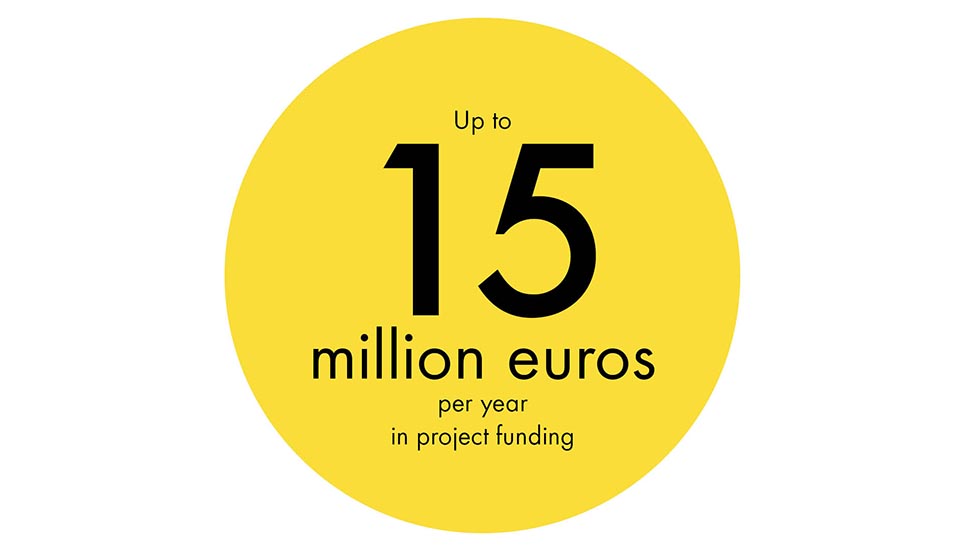Support making RiG more international!
Click here to start the surveySupport making "Research in Germany" more international! Your expertise and commitment are the key to the further development of promoting the German research landscape. We invite you to take part in our online survey and share your valuable experiences and opinions. Duration: 7-10 min.
Please start the survey at the end of your visit.
How is the start-up scene set up?
The quality of the German start-up and entrepreneurship scene has been improving in recent years: today’s business founders are more idea-driven, growth-oriented and innovative. And there is good news if you are thinking about starting your own business: the environment for start-ups is also a lot better now.
Innovative start-ups
Germany’s start-up scene is in a state of flux: a new generation of business founders is emerging who have many things in common – they pursue research and development as a matter of course, use digital technologies and launch businesses that they want to see expand in the future. These young start-ups develop new technologies aimed at achieving climate targets or engage in new fields of technology such as 3D printing, industry 4.0, artificial intelligence, quantum computing and blockchain, as well as areas such as driverless vehicles, robotics and genetics.
One such young and innovative company is the award-winning start-up LuxChemtech. The firm has specialised in circular systems for the recycling of elements such as silicon, indium, gallium and lithium. This allows the precious raw materials to be extracted from waste materials and fed directly back into the production process. The young company received the 2022 “KfW Award Gründen” for its innovative business idea.
Scientific spin-offs
Many spin-offs are launched as a result of projects in universities, university medical centres or research institutes. This was the case with the now world-famous German biotech firm BioNTech. Together with the US company Pfizer, this start-up founded by scientists developed the world’s first approved COVID 19 vaccine at an incredible speed during the pandemic.
This was also the case at Semorai. This scientific spin-off has created an AI-based and self-learning quality engineer that understands real-life connections and independently conducts far-reaching analyses. The AI is available not only to assist personnel during the highly complex design and production processes, but also supports them with error management. The two founders of Semorai got to know one another at the renowned Karlsruhe Institute of Technology, KIT.
Funding for start-ups
Of course, not all start-ups receive initial help from universities or companies. All the same, they can expect some support: besides the numerous awards and start-up prizes, substantial financial support is also available from public-sector funds, as is long-term coaching. There is indeed very good public support for start-ups: experts give better than average scores to German public funding programmes even when comparing them to those in other countries.
For example, the High-Tech Gründerfonds (HTGF), Germany’s biggest investor when it comes to early-phase financing of innovative and technology-oriented companies, provides support right from the start. Funding comes mainly from the Federal Government, followed by KfW Group. Private investors from small, medium-sized and large companies also contribute to the fund. The HTGF helps not only by providing early-stage funding but also actively supports you in getting your new business off the ground.
If you are launching a scientific spin-off, the publicly-funded EXIST programme may be of interest. The programme, which also helped the afore mentioned Semorai to get started, supports researchers and students in preparing and implementing their research-based start-ups.
Another option is to engage a business angel: these private investors not only contribute their capital to a young company – they also make their expertise, market knowledge and networks available. To find your angel, get in touch with a business angel association, many of which also belong to the Business Angels Netzwerk Deutschland. Or attend a matching event or one of the numerous other events aimed at entrepreneurs.
Venture capital
Generally speaking, the environment for start-ups and spin-offs has improved in recent years, and there has also been progress when it comes to investment: besides the considerable public-sector financing that is available, private investors are increasingly providing venture capital.

Disruptive innovation
Germany’s Federal Agency for Disruptive Innovation SPRIND aims to identify highly-innovative research projects with disruptive potential. It will then support their development and help them achieve a market breakthrough. Innovation competitions are staged to find the brightest innovators with the best ideas and explore their potential for disruptive innovation. Those projects with promising breakthrough potential can receive between 4 and 15 million euros per year in funding.
Facts and figures
550,000 business starters (2022)
61,000 innovation- and growth-oriented start-ups (2021)
More than 37% of founders are female
Roughly 22% of start-up founders come from outside Germany
7.2 billion euros of venture capital was invested in German start-ups in 1,088 financing rounds in 2023